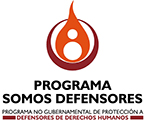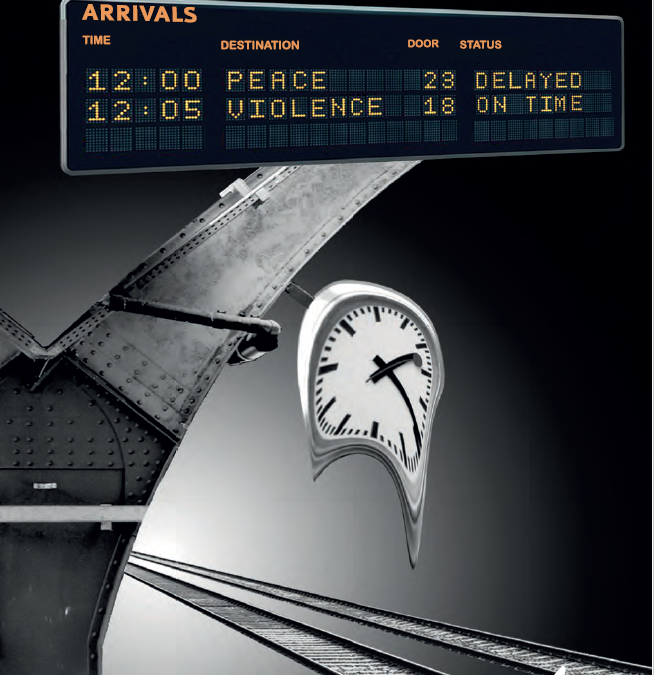The present biannual report of the Information System on Aggressions against Human Rights Defenders in Colombia -SIADDHH of the Somos Defensores Program, which corresponds to the period from January to June 2023, is entitled “The Wait”, alluding to the expectation of the arrival of a new situation in the Colombian context, based on its origin in the Latin word sperare, which means to have hope.
We wanted to capture this image of the hopeful waiting in a train station, where multiple expectations and joys, but also sadness and pain, are usually combined. During the period of preparation of the report, the current government led by President Gustavo Petro and Vice President Francia Márquez has completed its first year, it has been an intense and convulsive year, in which the dynamics of violence are still present with greater force,
which has generated multiple aggressions against defenders and social leaders, as well as affectations to the civilian population in general.
The pain caused by this violence persists, however, the Total Peace policy, the implementation of a new security policy under the human security approach, the current government’s recognition regarding the seriousness of the human rights situation and the promotion of initiatives aimed at addressing it in dialogue with human rights organizations, make the expectation fluctuate between hope and pessimism.
The six-monthly report consists of three chapters: In the first chapter, called the waiting area, we seek to highlight some relevant aspects of the state’s response to violent attacks and how they have materialized during the first half of the year, specifically in relation to the path of Total Peace and the ceasefire proposals with the various armed groups.
In the second chapter entitled Against the Clock (Counterclock), we wanted to incorporate some brief notes on this year’s commemoration of the 25th anniversary of the United Nations Declaration on Human Rights Defenders, which official name is the Declaration on the Right and Responsibility of Individuals, Groups and Organs of Society to Promote and Protect Universally Recognized Human Rights and Fundamental Freedoms, based on seeing it as an important instrument of recognition of the work on the defense of human rights and of enforceability for states, which has also impacted the Inter-American Human Rights System. We also incorporate in this section some considerations on the evolution of the protection of human rights defenders and social leaders in Colombia during this period, recognizing the normative developments that have taken place, but also pointing out some of the identified failures that have prevented the existence of an effective protection policy for the exercise of the right to defend human rights.
The third chapter, entitled Out of Time, is dedicated to presenting the results of the Program’s Information System during the semester, which registered a worrisome 6% increase in the total number of attacks. Although there has been a 14% decrease in the number of murders, the 85 murders continue to be the manifestation of a terrifying reality. Also of concern is the 50% increase in the number of assassinations of defenders and leaders, and the recording of 52 cases of assassination attempts. The chapter also includes a crosscheck of information with the recent Early Alert issued by the Ombudsman’s Office on human rights defenders and on risks in the electoral context, identifying the municipalities with the highest number of murders according to the SIADDHH.




